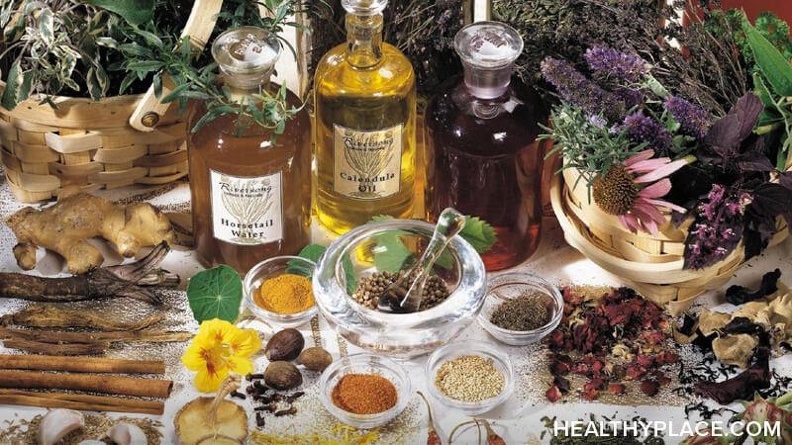What Natural Treatments Help Bipolar Depression?

Natural treatment for bipolar depression may help ease bipolar symptoms and help people function better in their lives. Natural treatments, often called complementary or alternative medicine (CAM), include a variety of approaches designed to help bipolar depression by adding to—not replacing—the medication and other treatments someone is already receiving for their illness. Bipolar depression natural treatments have received mixed reviews from professionals and patients alike: some swear by them while others steer clear.
Some people use natural remedies for bipolar depression because they want to enhance their treatment, they feel comfortable with the idea of natural treatment, or they want more control over their own treatment. If you’re considering CAM, it’s important to investigate what’s available and whether the treatments help or harm.
Here, you can explore this non-traditional treatment approach for bipolar depression. First, you’ll find examples of natural treatments. Then, you’ll discover some of the benefits and cautions that are important to consider before starting this type of treatment. Finally, you’ll gain two empowering resources to help you feel confident in your treatment.
Natural Treatments to Help Bipolar Depression
Natural treatments for bipolar depression take multiple forms. Some are behavioral, things you do to improve your bipolar depression. Others are nutritional, dietary supplements that affect your brain.
CAM approaches that involve behaviors and actions include things such as:
- Meditation
- Supervised mindfulness-based cognitive therapy
- Yoga
- Massage
- Aromatherapy
- Acupuncture
- Light Therapy
Dietary supplements that can help bipolar depression include:
- Omega-3 fatty acids (fish oil or fatty fish)
- Inositol, a synthetic vitamin
To be sure, there are numerous claims that other supplements help bipolar depression. Most claims are unsubstantiated; therefore, they’re not ready to be added to any reputable list of depression-reducing supplements. Others have been found to be dangerous so are also left off the list. Omega-3’s and inositol have been shown to impact brain chemistry safely and in ways that improve bipolar depression.
Two supplements to avoid in bipolar depression despite publicity to the contrary:
St. John’s Wort is a popular herbal supplement to help major depressive disorder, and SAMe is a widely-used coenzyme. Both do seem to improve symptoms in many people who take it for major depressive disorder. For bipolar depression, though, St. John’s Wort and SAMe can be dangerous. They can induce mania as well as interfere with medications taken for bipolar depression.
Bipolar Depression Natural Treatments: Help and Harm
Treating bipolar depression naturally can bring noticeable, positive changes. The behavioral approaches work very well (like supplements, they impact brain chemistry and function). Natural supplements, when combined with the medication your doctor has prescribed, can improve symptoms by enhancing your medication’s functions and making bipolar depression easier to manage.
Further, many supplements help treat symptoms with few side-effects. This can make people willing to use them regularly, a requirement for supplements to work properly.
Along with the benefits of natural treatments for bipolar depression come cautions against possible harm. Among these important cautions:
- “Natural” isn’t the same thing as “safe”
- Individual differences are significant, and what has been deemed safe for “most” people might not be safe for you
- Some supplements reduce the effectiveness of prescription medications
- Some damage the heart, liver, kidneys, and other vital organs
- While some supplements have few side-effects, others have unpleasant and potentially dangerous side-effects
Much more research is needed for natural treatments to help bipolar depression. Until scientists learn more, always talk to your doctor before using any natural supplement. Also, be sure to notify your doctor of any changes in your mood or general health.
Two useful resources can help you research supplements you may be interested in. Both are comprehensive databases containing facts about supplements and prescription medications.
- Consumer Lab (the drawback to this one is that you must join and pay to use the service; $69 for two years or $42 for one year)
- National Institutes of Health Office of Dietary Supplements
Arming yourself with information about treating bipolar depression naturally can help you make informed treatment decisions.
APA Reference
Peterson, T.
(2021, December 28). What Natural Treatments Help Bipolar Depression?, HealthyPlace. Retrieved
on 2026, February 28 from https://www.healthyplace.com/bipolar-disorder/bipolar-depression/what-natural-treatments-help-bipolar-depression



